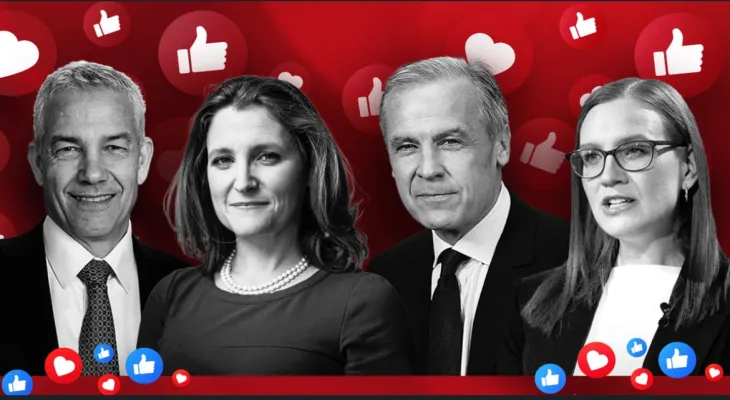Search here
Newspaper
Search here

Arab Canada News
News

Published: March 6, 2025
With the intensification of competition for leadership of the Canadian Liberal Party, social media has become a key arena for candidates to rally support and communicate with voters. While the digital campaign strategies differ among competitors, recent analysis reveals the extent of the impact of online presence on their chances in the race.
Chrystia Freeland, the former Deputy Prime Minister and Minister of Finance, has emerged as one of the most active candidates on digital platforms, relying on videos and interactive campaign messages to promote her political vision, benefiting from her prominent position within the party.
On the other hand, Karina Gould, the former Minister of Families, focused on direct communication with voters through social media, calling for a "renewal of leadership," which resonated strongly among the younger generations within the party.
In contrast, Mark Carney, the former Governor of the Bank of Canada, adopts a more cautious approach in his digital strategy, relying on his network of relationships within economic and political circles to bolster his position in the race.
Meanwhile, Frank Baylis, the former MP for Montreal, concentrated on supporting community issues, using social media as a platform to connect with voters, especially within diverse communities. Baylis relies on a strong base of supporters, particularly in circles that embrace a progressive approach within the party.
As reliance on digital platforms as a central electoral tool increases, the impact of these digital strategies remains a decisive factor in defining the identity of the next leader of the Liberal Party, amidst fierce competition that reflects a shift in modern political campaigning techniques.
Comments